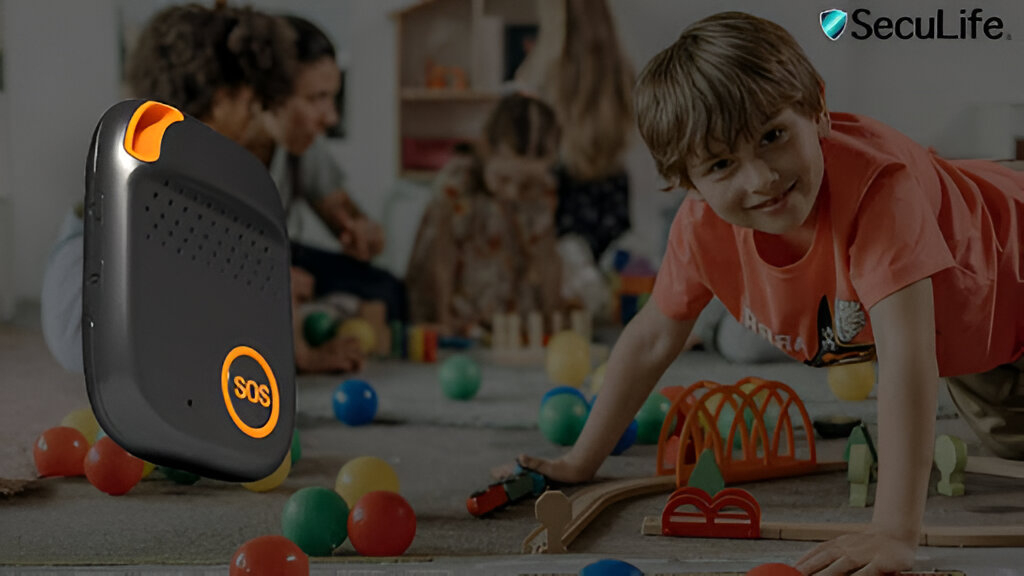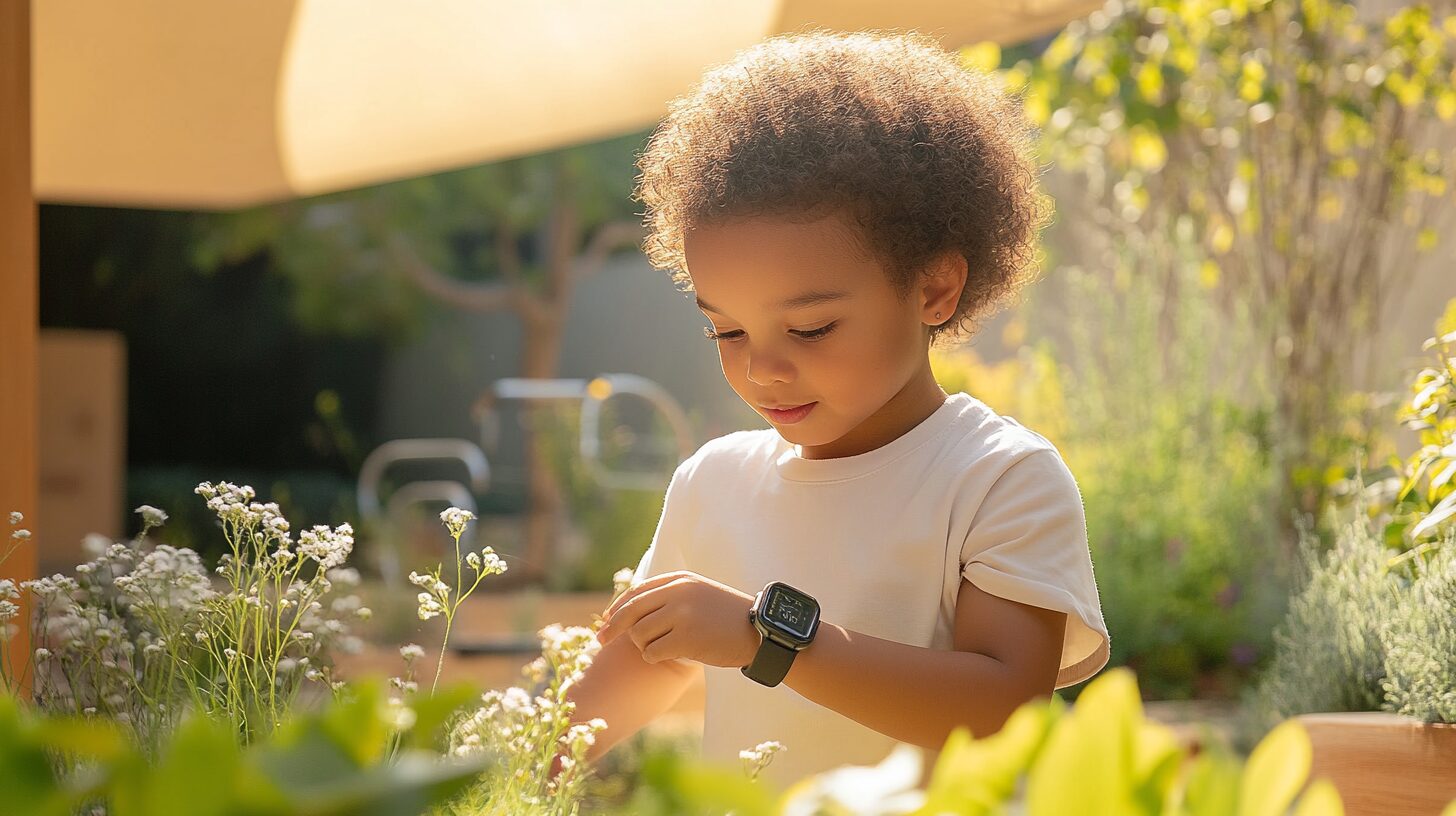Introduction to GPS Tracking for Elderly Care
GPS tracker for Elderly– GPS trackers have real-time tracking. They help caregivers track their elderly loved ones’ whereabouts. This ensures their safety and well-being. This removes the need to constantly worry about wandering. It also ends its reliance only on periodic check-ins. Families can gain peace of mind. They can find their loved ones quickly in emergencies.
As our loved ones age, ensuring their safety and well-being becomes a paramount concern. One of the biggest challenges families face is the risk of wandering or disorientation, especially for those suffering from conditions like Alzheimer’s or dementia. This is where GPS tracking for elderly care emerges as a powerful solution, offering a proactive approach to address these challenges.
GPS (Global Positioning System) trackers are compact devices that leverage satellite technology to pinpoint the precise location of an individual or object. In the context of elderly care, these trackers can be worn or carried by seniors, providing real-time information about their whereabouts to their caregivers or family members. This technology has revolutionized the way we approach elderly care, empowering independence while ensuring safety and peace of mind.
The Importance of Consent and Open Communication
GPS tracking may seem invasive. But, it is crucial to understand the need for consent and open communication. You must get consent from your elderly loved ones. If they can’t consent, you must establish guardianship or conservatorship. Transparency and open dialogue are key. They ensure ethical and legal GPS tracking. They foster trust and respect within the family.
You must approach this decision with empathy and understanding. You must acknowledge the worries of your elderly loved ones. By involving them in decisions and answering their questions. You can create a team that puts their well-being first. It will respect their freedom.
Compelling Reasons for Tracking Elderly Parents
There are several compelling reasons why families may choose to track their elderly parents using GPS technology:
- Awareness of Activities: Tracking your parents lets you know their daily routines and activities. This ensures their safety and well-being, especially if they live independently.
- Location Monitoring: GPS tracking shows where your parents are at any time. It lets you react quickly if they need help or deviate from their usual patterns.
- Peace of Mind: Knowing your parents’ location can bring peace of mind. This is especially true if you live far away. Or if they tend to wander due to conditions like dementia or Alzheimer’s.
- Emergency Assistance:In an emergency, GPS tracking can be a lifeline. It helps you find your parents quickly and ensure they get the needed help. This could save lives.
- Promoting Independence: GPS trackers provide a safety net. They can empower seniors to keep their independence. Seniors can use them to do daily activities confidently. They know that help is ready if needed.
Mobile Apps and GPS Trackers: Versatile Solutions for Monitoring
There are various options available for tracking elderly parents, catering to different needs and preferences. Mobile applications and dedicated GPS trackers offer versatile solutions for monitoring your loved ones.
Mobile apps like the Senior Safety Alert can be installed directly on your parents’ smartphones, providing real-time location monitoring, emergency alerts, and fall detection features. These apps leverage the built-in GPS capabilities of smartphones, offering a convenient and familiar solution for tech-savvy seniors.
Dedicated GPS Trackers
On the other hand, you can wear or carry dedicated GPS trackers like Seculife. They offer accurate location tracking and extra features for senior care. These devices often have two-way communication. They also have SOS buttons and long-lasting batteries. They ensure reliable monitoring and easy access to help.
The choice between a mobile app or a GPS tracker depends on factors. These include your parents’ comfort with technology. Also, their mobility needs and the features you need for their safety and well-being.
Enhancing Safety and Independence with GPS Tracking
GPS tracking technology plays a pivotal role in enhancing the safety and independence of seniors, addressing some of the most significant challenges associated with aging.
Preventing Wandering and Disorientation
Seniors often have conditions like dementia or Alzheimer’s. For them, GPS trackers can be a lifesaver. If they wander or get lost, their caregivers can quickly find them. They can ensure their safe return. This reduces the stress and anxiety of these conditions. The geofencing feature allows caregivers to set virtual boundaries. It can alert them if their loved one goes outside a designated area. This provides an added layer of security.
Promoting Mobility and Independence
GPS trackers can bring peace of mind for seniors. They may have trouble moving around or navigating new places. This is due to mobility issues or cognitive decline. By knowing where their loved ones are, caregivers can offer help when needed. This allows seniors to keep their freedom and do daily activities.
Responding to Medical Emergencies
In case of a fall or other medical emergency, GPS trackers can be instrumental in ensuring a swift response. By providing accurate location information to emergency services, these devices can significantly reduce response times, potentially minimizing the severity of injuries or health complications and saving lives in critical situations.
Providing Peace of Mind for Families
GPS tracking has a big benefit for elderly care. It gives families peace of mind. Adult children and caregivers can use a smartphone app or web portal. They can use it to check the whereabouts of their loved ones. This ensures their safety and well-being.
This constant connection provides reassurance. It allows for quick responses in case of emergencies or unusual activity. It eases the worry and stress of caring for elderly loved ones. Knowing their loved ones are safe and accounted for. This lets families focus on enjoying time together and making cherished memories.
Addressing Challenges Associated with Aging
As our loved ones age, they may face many challenges. These can affect their ability to live independently and keep their quality of life. GPS tracker technology can help with some of these challenges. It provides solutions that promote safety, independence, and well-being.
- Cognitive Decline: For seniors with conditions like dementia or Alzheimer’s, GPS trackers can prevent wandering and ensure their safety, reducing the burden on caregivers and providing peace of mind for families.
- Mobility Issues: GPS trackers can provide peace of mind for seniors who may have difficulty moving around or navigating unfamiliar environments, allowing them to maintain their independence while ensuring their safety.
- Medical Emergencies: In case of a fall or other medical emergency, GPS trackers can quickly alert caregivers and emergency services, reducing response times and potentially saving lives.
- Social Isolation: By promoting independence and mobility, GPS trackers can help seniors stay socially active and engaged, reducing the risk of social isolation and its associated negative impacts on mental and physical health.
Enabling Long-Term Independence for Seniors
Many older adults value their freedom. They want to keep their daily routines and activities. GPS tracker technology can help with this. It provides a safety net and lets seniors keep living confidently.
With GPS trackers, seniors can do activities outside their homes. They know that help is a button press away if needed. It can greatly improve their life. It lets them age gracefully while keeping their freedom and dignity.
GPS Tracker Technology in Senior Care
The aging population continues to grow. The demand for innovative senior care solutions, like GPS trackers, will likely increase. Technology keeps advancing. We can expect even better GPS trackers to emerge.
Technology continues to change. GPS trackers for elderly care will become more advanced, easy to use, and available. They will change how we care for our aging loved ones and empower them to live fully.
FAQ
Q: Is it legal to track an elderly person without their consent?
A: No, it is generally not legal to track an elderly person without their consent or the consent of their legal guardian. Obtaining proper consent is crucial to ensure that GPS tracking is implemented ethically and legally. Open communication and transparency are essential to foster trust and respect within the family.
Q: Can GPS trackers be used for seniors with dementia or Alzheimer’s?
A: Yes, GPS trackers can be particularly beneficial for seniors with dementia or Alzheimer’s disease, as these conditions often lead to wandering and disorientation. GPS trackers can help caregivers quickly locate their loved ones and ensure their safety, reducing the stress and anxiety associated with these conditions.
Q: How accurate are GPS trackers for elderly care?
A: Modern GPS trackers for elderly care are highly accurate, with the ability to pinpoint locations within a few meters. However, accuracy can vary depending on factors such as the device’s quality, satellite coverage, and environmental conditions. Advancements in technology are continually improving the precision of GPS tracking.
Q: Are GPS trackers for seniors expensive?
A: The cost of GPS trackers for elderly care can vary depending on the features and service plans offered by different providers. While some devices and services may be more expensive, there are also affordable options available to suit various budgets. However, it is essential to consider the long-term benefits and peace of mind that GPS trackers can provide when evaluating the cost.
Q: Can GPS trackers be used for monitoring seniors in assisted living facilities?
A: Yes, GPS trackers can help assisted living facilities. They use them to track their residents and ensure their safety. Many facilities are using GPS tracking to stop wandering. It also gives peace of mind to families and staff. Yet, it is crucial to get proper consent. It’s also important to follow ethical rules when using such technology in a care facility.






